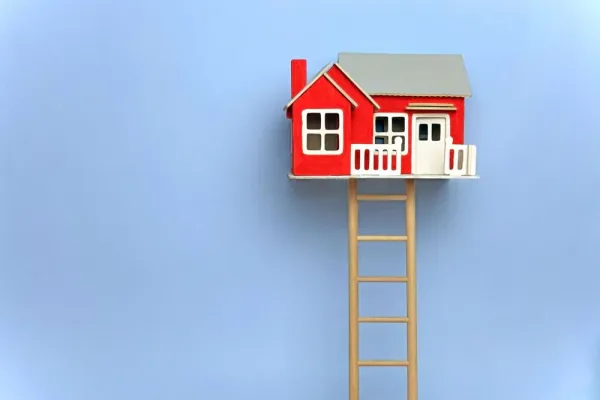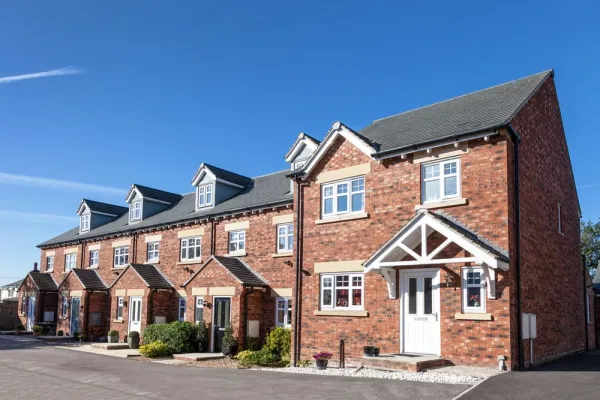Your environment has a significant impact on many aspects of your life.
Big cities and small towns are two very different types of environments.
So, this issue requires careful consideration when you’re choosing where to live.
Keep reading for a comparison of living in a big city vs. a small town.
What counts as a big city?
In the United Kingdom, a city is generally classed as an area with more than 100,000 people.
The Office of National Statistics counts any built-up area with more than 200,000 people as ‘large’.
Some of the biggest cities in the UK by population including (in order of size by population):
- London (9 million)
- Birmingham (1.1 million)
- Leeds (820,000)
- Glasgow (620,000)
- Manchester (570,000)
How many people live in a big city in the UK?
Roughly 54% of the UK’s population live in cities. This statistic applies to all cities, not just the largest ones.
The number of people living in ‘big’ cities would be less than this.
What counts as a small town?
A small town is generally considered to be an area with more than 10,000 residents and fewer than 25,000 residents.
More than figure is seen as a medium or large town, while less than this number is a village.
How many people live in a small town in the UK?
According to the Office for National Statistics, around 63% of UK towns are considered ‘small’.
These towns are 748, with a population varying from 5,000 up to 25,000.
There’s no precise figure to answer the question, although some experts suspect that around 10% of the UK population lives in a small town.
Housing markets in big cities vs. small towns?
Properties in a big city tend to be more expensive than an equivalent in a small town.
For example, a property in London costs £691,595 on average, but in the small town of New Addington not far away, the average price is £364,532.
Likewise, a house in Edinburgh costs £339,000 on average. Whereas in Tranent not far away, it costs around £252,000.
A higher percentage of sales in a large city is also likely to be flats. This is due to the high population density, and developers keen to maximise profit from the land they own.
By contrast, land is in greater supply in small towns. This means that you’ll find more detached and semi-detached homes.
House price trends often move as a whole in the UK.
If interest rates go up, making mortgages more expensive, it typically affects people in both big cities and small towns.
Advantages of living in big cities
Transport
Transport in cities is usually good in two ways:
- Internally: Getting around the city itself is usually convenient and well-priced. This may even include designated cycling lanes
- Externally: Links to outside areas are usually convenient. This includes other countries when you factor in cities with airports.
Socialising and entertainment
The social life surrounding you in a big city can also be exciting. You’ll be surrounded by conversation and networking opportunities.
And if you want to join a sports team, go to the pub, or join an activity group to socialise.
Property prices
For property owners, living in a big city has even more advantages. Your house tends to sell for more.
And if you rent it out, competition is fierce, meaning you could get a reasonable price.
Disadvantages of living in big cities
Pollution (in the city)
On the other hand, big cities tend to have more pollution. This includes litter in the street, carbon monoxide in the area, and noise pollution.
Most people get used to this after a while. But if you prefer a quiet, peaceful life, it can be a struggle.
(Because of the infrastructure, the pollution emitted by cities is actually lower per capita than small towns).
Cost of living
Big cities have a higher cost of living.
Your fuel, council tax, energy bills, and more will likely be higher in dense urban areas. Your income is typically higher, but so are your bills.
Crime rates
You’re also likely to see more crime in big cities. Almost all urban areas have higher crime rates.
If you want to feel completely safe while walking around at night or leaving your kids to travel alone, then cities might not be for you.
Advantages of living in a small town
Community
Many people feel that small towns have a greater sense of ‘community’.
You’re more likely to be on first-name basis with all your neighbours, local shopkeepers, or transport drivers.
This particular advantage suits people in retirement or those with young children.
Space
There’s more space in small towns than cities.
This means the types of property available are larger and there is more room for outdoor activities.
Lower cost of living
You will experience a lower cost of living in small towns.
Property, as does council tax and local supplies, tend to be less expensive. And crime rate is usually lower.
Limited job opportunities
On the other hand, a small town can have limited job opportunities. The average salary for these roles could be lower, too. This counteracts the lower cost of living, many people argue.
Less schooling options
You have fewer options for schooling in small towns. Many places have only one primary school or secondary school to choose from.
Unless you’re willing to travel long distances, you don’t have the options of someone in a big city.
Less entertainment venues
Lastly, you have fewer ways to entertain yourself in a small town.
It’s less likely that you’ll be surrounded by:
- Theatres
- Cinemas
- Arcades
- Pubs
- Bars
- Parks.
The lower population also means that less activity groups exist. This is something you’ll need to learn to deal with.
Should I live in a big city or a small town?
Lots of people feel most comfortable in the environment that they’re used to. So, if you grew up in a small town, you may want to stay there all your life.
But it’s a very different question if you’re basing it purely of what makes the most financial sense.
Many people prefer small towns when raising young children. The crime rate is lower and there’s far less traffic.
It’s easier to go for walks with your children, let them play outdoors, and ensure they’re far away from harm.
Proximity to a big city might be important if you need your income to remain high. You’re unlikely to achieve this in a small town.
The only exception is if you work remotely and thus can earn big money while living ‘out of the way’.
Pay attention to your plans over the next five years. Are you looking for safety, relaxation, and a sense of community?
Or do you want lots of activity, socialising, and career progression? Get feedback from friends and family with experience living in both environments. And pay attention to local housing markets too.
















